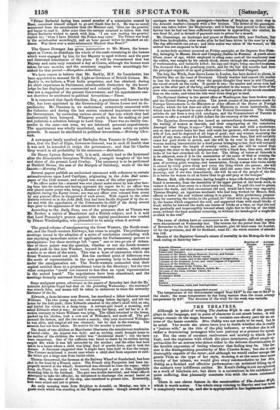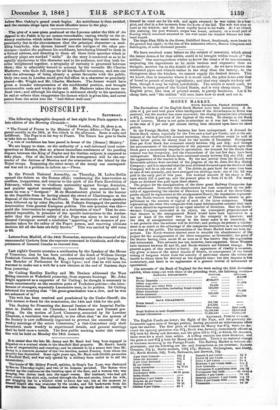THE THEATRES.
Although in point of writing The Jealous Wife is one of the poorest plays in the language, and in point of character is not much better, it will always remain on the stage, because it contains one showy part Ibr an ac- tress of the haute comedic. Mrs. Oakley was not made to be read, but to be acted. The words she utters leave you in doubt whether she is really a "jealous wife," as the title of the play indicates, or whether she is not rather a domineering termagant who uses jealousy as a pretext for tyran- ny. But the state of constant restlessness and anxiety in which she re kept, and the explosion with which the piece terminates, afford ample op- portunities for an actress who shines either in the delicate discrimination or the forcible expression of feeling whatever that feeling may be. I he for- mer is the distinguishing peculiarity of Mrs. Charles Kean; but she is also thoroughly capable of the latter; and although we would rather accept the gentle Viola as the type of her style, deeming it at the same time .more worthy of her talents, we would give every commendation to her Mrs. Oakley as a finished and effective performance—an artistical filling up of the author's very indifferent outline. Mr. Kean's Oakley is not conspicuous as a work of histrionic art; but there is a naturalness in his exhibition of quiet suffering, that pleasantly contrasts him with the more celebrated lady. There is one clever feature in the construction of The Jealous wife, which is worth notice. 1 he whole story relating to Harriet and her lover is completely wound up, and she is appropriated to her legitimate admirer,
before Mrs. Oakley's grand crash begins. An anticlimax is thus avoided, and the curtain drops upon the most effective scene in the play.



























 Previous page
Previous page